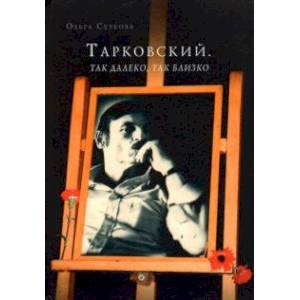Tarkovsky. So Far, So Close. Notes and Interviews
Please sign in so that we can notify you about a reply
The collection of works by Kinoved and the candidate of art history Olga Surkova, who turned out to be a long -term interviewer of Andrei Tarkovsky since his student years, has an undeniable and unique value of the documentary source. From 1965 to 1984, Surkova constantly illuminated the director’s work, cooperating with him in close contact, fixing his thoughts regarding the problems of cinema specifics, the place of cinema among other arts, the role and purpose of the artist. Numerous interviews made by the author at different times and in different circumstances create a feeling of close communication with the master. And notes from the set give the impression of the co -consumption in the working moments of creating its
paintings. Surkova also managed to continue his observations of the fate of the director already abroad. Summarizing the seen and heard, the author of the collection not only comments on Tarkovsky’s statements, but also explores the features of his work in his works, explaining the significance and drama of his fate in his own way. Suddenly, the difficult worldview of the director in comparison with Ingmar Bergman, who was repeatedly addressed by Tarkovsky in his thoughts on the cinema, is in comparison with new colors. O. Surkova also managed to see the theatrical works of Tarkovsky in Moscow and London, describing his production “Boris Godunov” in Covent Garden and “Hamlet” in Lenkom, the conversations about which are collected in the form of a three-stroke play.
She also managed to record an informal conversation valuable for cinema in Rome in two outstanding Russian filmmakers: A. Tarkovsky and G. Panfilov, as well as for writing a press conference in Milan, at which Tarkovsky explained his intention to continue working in the West
paintings. Surkova also managed to continue his observations of the fate of the director already abroad. Summarizing the seen and heard, the author of the collection not only comments on Tarkovsky’s statements, but also explores the features of his work in his works, explaining the significance and drama of his fate in his own way. Suddenly, the difficult worldview of the director in comparison with Ingmar Bergman, who was repeatedly addressed by Tarkovsky in his thoughts on the cinema, is in comparison with new colors. O. Surkova also managed to see the theatrical works of Tarkovsky in Moscow and London, describing his production “Boris Godunov” in Covent Garden and “Hamlet” in Lenkom, the conversations about which are collected in the form of a three-stroke play.
She also managed to record an informal conversation valuable for cinema in Rome in two outstanding Russian filmmakers: A. Tarkovsky and G. Panfilov, as well as for writing a press conference in Milan, at which Tarkovsky explained his intention to continue working in the West
Author:
Author:Surkova Olga Evgenievna
Cover:
Cover:Hard
Category:
- Category:Arts & Photography
- Category:Films & Series
- Category:Reference books
ISBN:
ISBN:978-5-89826-600-4
No reviews found
